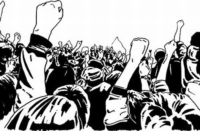We are awash with pharmaceutical companies in Ireland. Some of the high-end jobs are well paid, and that should be welcomed. But the global pharmaceutical industry provides one of the strongest illustrations of how the profit motive can misdirect humanity’s creativity and badly miscalculate resources, something we are all familiar with in this failed state.
The costs of developing new drugs goes into the millions of dollars, and humans are needed in the trial period to ensure that safety is paramount (they say). When the drugs hit the market the pharma industry charges astronomical prices for their product and for the ever-present strict patent laws. These laws are very useful, as they limit the use of much-needed drugs in preventing death and easing human misery.
It is a bit like buying something expensive but not using it, as it cost you so much.
Globally, the most dangerous and deadly diseases most affect the poor, who cannot afford private medicine, so the global industry does not invest in new treatments; instead it allocates most research and development to less pressing but more profitable areas of medicine, such as coronary, cholesterol and arthritis medicines, for the obvious reason, i.e. for never-ending profits.
Drug-resistant bacteria pose an enormous public health threat to millions of people around the world. Why do the pharmaceutical companies not invest in new antibiotics, thereby helping humanity and relieving so much pain and misery? The answer is clearly profit-driven, as to do so would cause huge upheavals in the massive earnings of these companies.
The time has come for governments to take the lead and invest in drug research, allocating most attention to the most dangerous diseases, and then make these drugs available free to those who need them.
It is worth bearing in mind that pharmaceutical companies are of no use if they cannot get good graduates, decent roads, and access to fresh water—all of which are provided by the state.
So let’s go all the way and start producing drugs for all of us.






